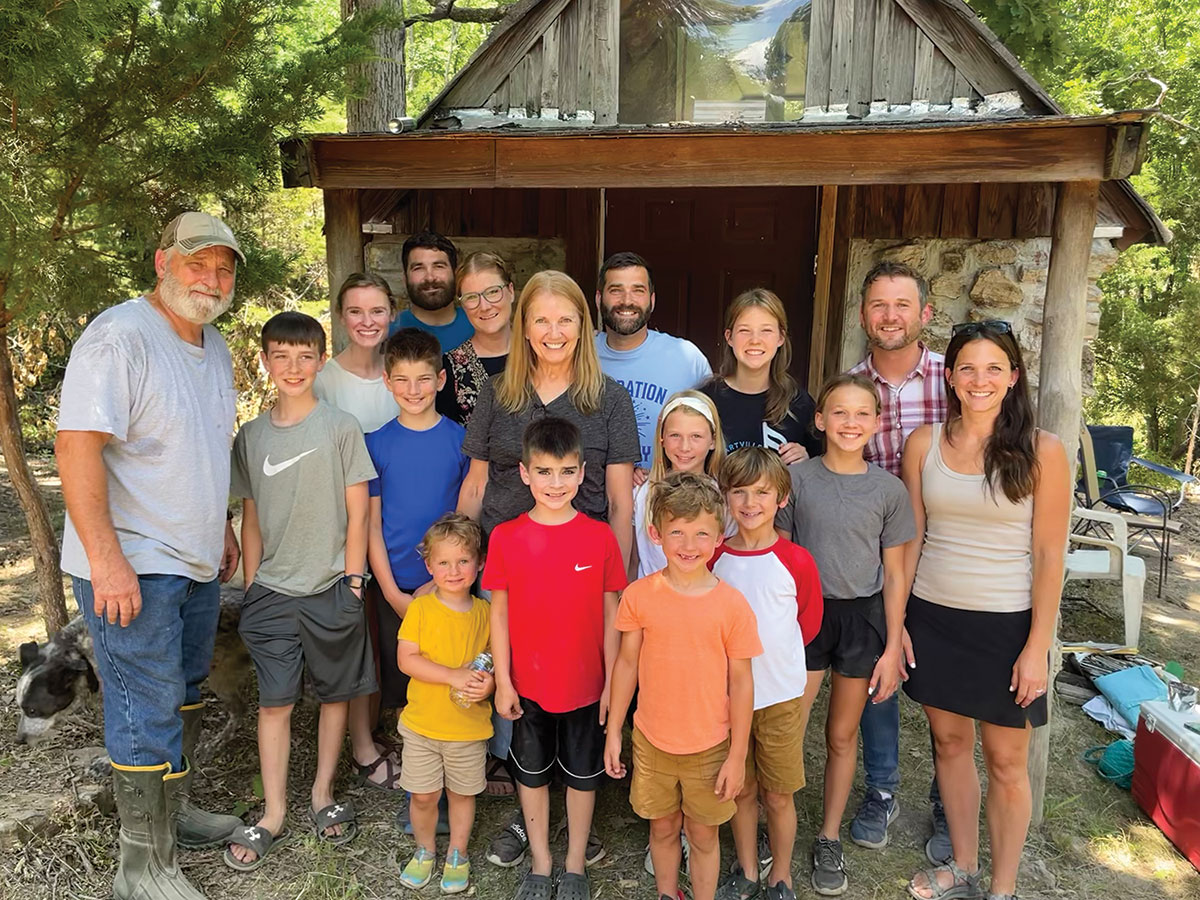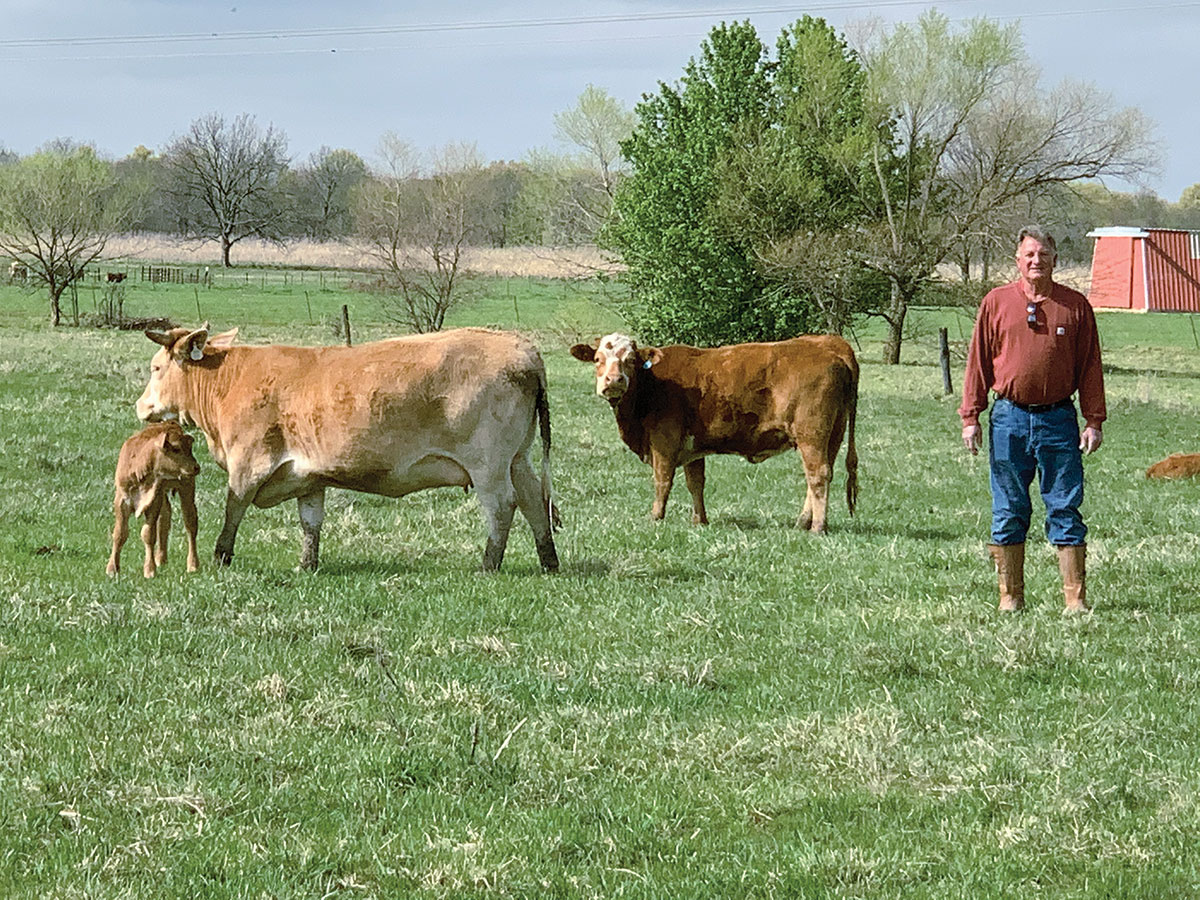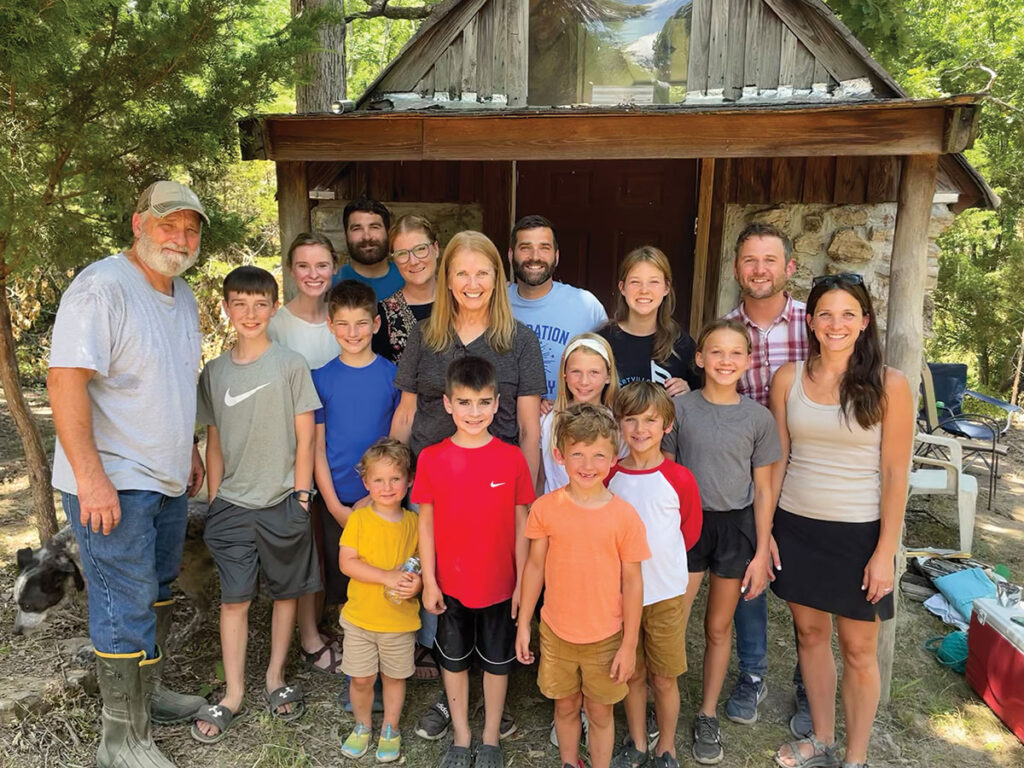
Stephen and Judith Fugitt were drawn to Limousin when they began their herd
NORWOOD, MO. – In 1995, college professor Stephen Fugitt and his wife, Judith, purchased a property in Wright County, Mo. Today, that property is a farm known as Fugitt Limousin.
The Fugitts both have agricultural backgrounds; Judith was raised on a dairy farm in Conway, Mo., and Stephen has traced his family’s farming history back to the mid-1800s.
Stephen explained that the decision to work with Limousin cattle stems from their impressive muscle development and docile temperament. He added that the vigor of Limousin calves was a major factor in the selection of the breed.
“We also have a LimFlex bull,” Stephen said. “We are currently breeding our LimFlex heifers with a black purebred bull and are looking forward to seeing what these calves will do.”
The Fugitts practice natural breeding and have used artificial insemination in the past.
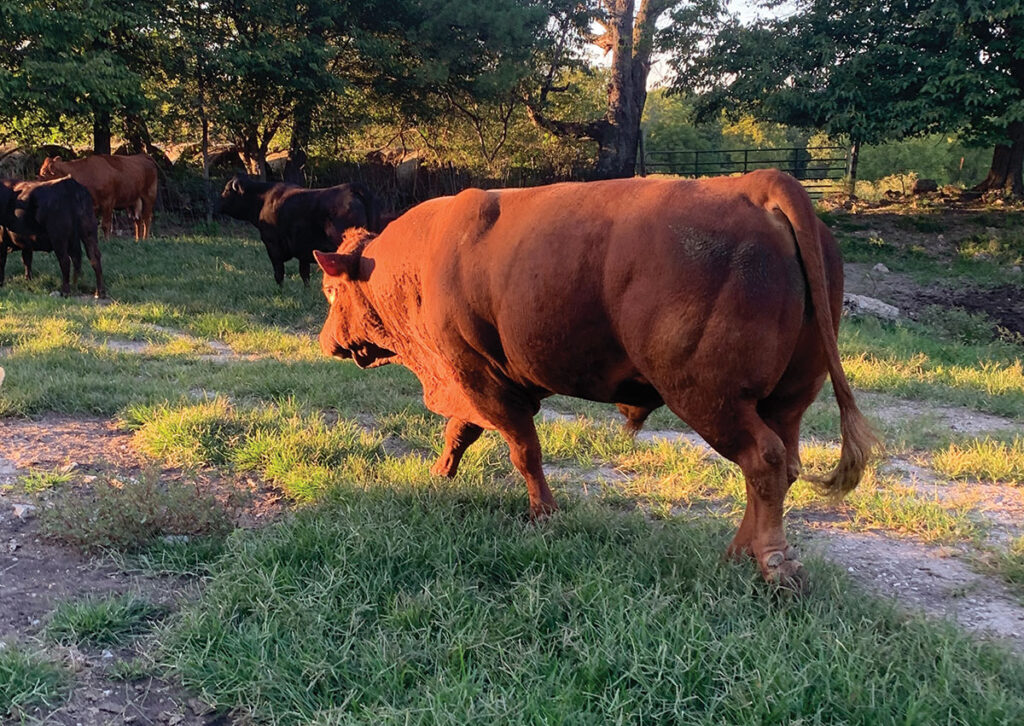
“We generally leave the bulls in with the cows year-round,” Stephen said. He explained that pelvic measurements, which are performed on their heifers at 15 months old, provide a tool to determine the calving ability of the heifer.
“Feeding and breeding are inseparable,” Stephen said. “Nutrition makes a difference in the herd’s productivity.”
The feeding regimen, Stephen elaborated, provides calves with grain containing a protein content of 12 to 14 percent. This gradually introduces the animals to feed until they are fully weaned around 9 months.
The farm supplements their herd’s diet with lick tubs containing minerals and protein, and young bulls and heifers receive daily feedings with a protein content of 13 to 14 percent, split between morning and evening. Access to grass or hay as well as water is provided at all times.
While their primary focus is raising breeding bulls, the Fugitts sell calves and heifers periodically to maintain herd dynamics and genetic diversity. Marketing efforts involve leveraging online platforms and local feed stores to reach potential buyers.
The Fugitts started with 7 acres. Today, their operation spans multiple properties in Wright County that boast meticulously managed fescue pastures and hay fields.
“We fertilize and try to keep the soil in good shape so we can maximize grass for pastures and hay,” Stephen said.
All calves at Fugitt Farms receive one series of shots before reaching a year old, accompanied by worming. Additionally, calves are tattooed in their ears for identification and registration purposes.
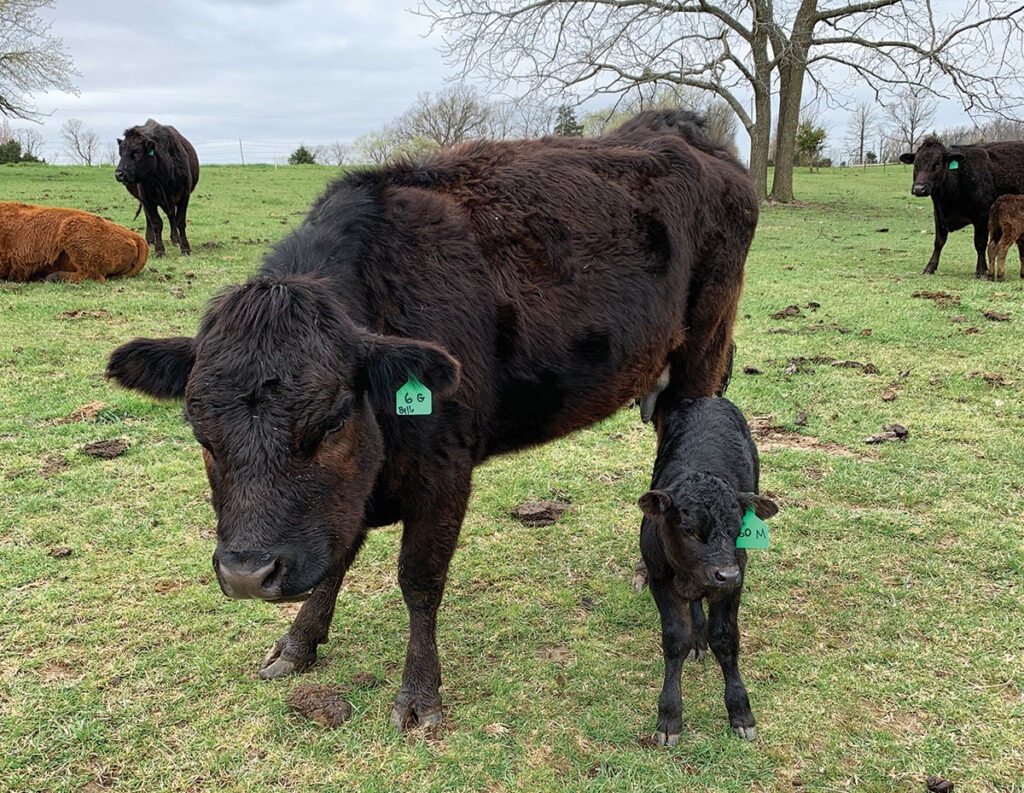
The farm maintains a vigilant approach to hoof health.
“Once in a while an old cow will start having a problem with toes growing out so we will trim them ourselves if we can, or take them to the vet if necessary,” Stephen said.
Cows remain in the herd as long as they can produce calves regularly.
While primarily a cattle farm, the Fugitts raise myriad other animals. Apart from dogs and cats, they maintain a flock of around 30 laying hens.
Recently, they’ve ventured into swine production with two Duroc gilts and one young Duroc boar.
“They are actually mixed with a little Mangalitsa, but to my eye, they look mostly Duroc,” Stephen said. He added they are expecting their first litter of piglets, which has generated excitement amongst his grandchildren.
“The novelty animal on our farm is the emu,” Stephen said. Acquired from neighbors who were relocating, the emu has become a farm favorite.
Looking ahead, the Fugitts remain committed to upholding their farming legacy. Nestled in the rolling hills of the Ozarks, Fugitt Limousin is a symbol of classic Ozarkian values: family, tradition, and hard work.

